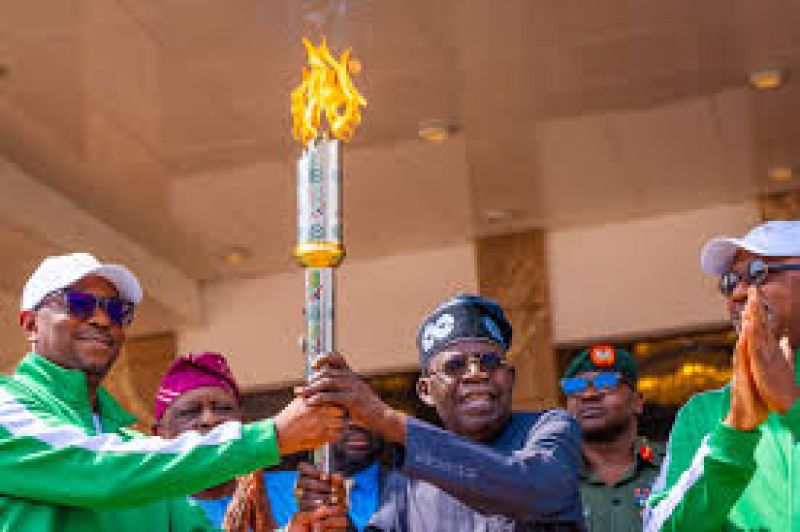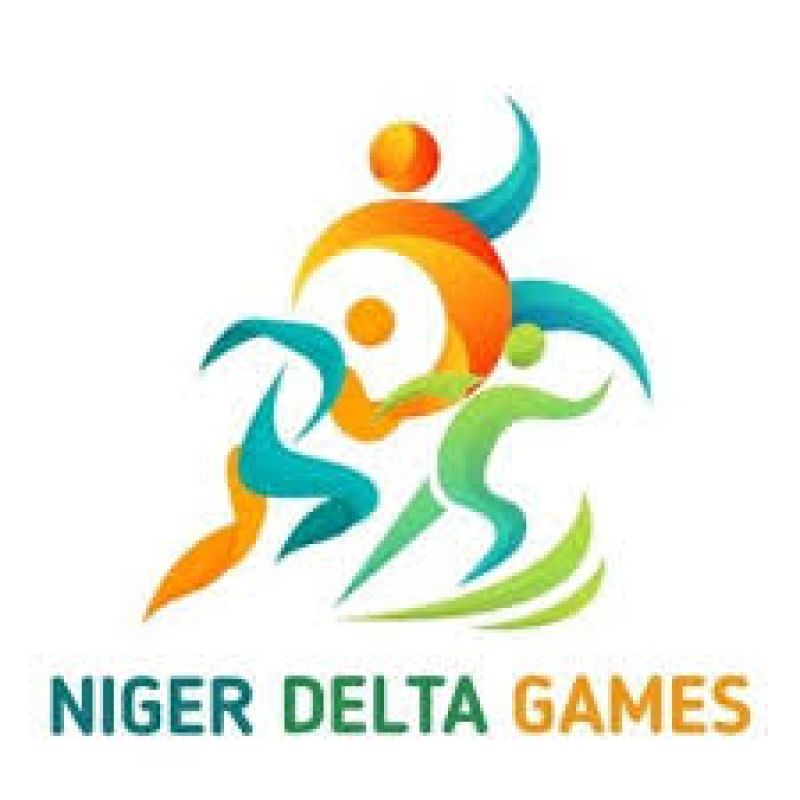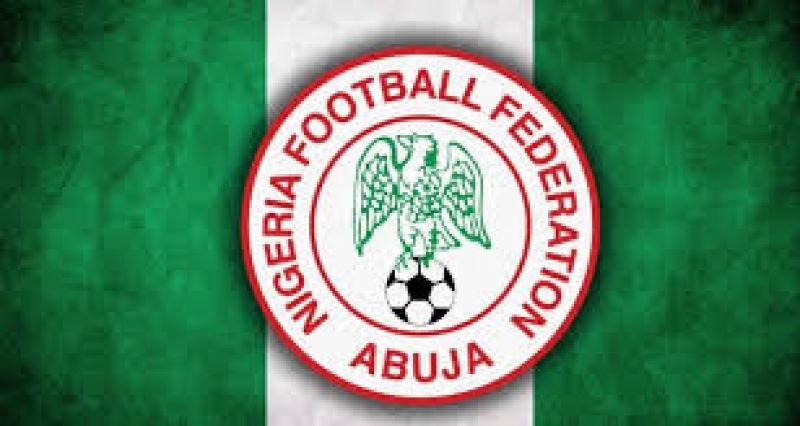By Daily Sports on May 18, 2017

In Gabon the Africa Under-17 Nations Cup is currently on. While several cadet teams from different African countries are making their international tournament bows, Nigeria, the defending champions of the Under-17 World Cup and the world’s most successful country at that level of international football, are left in the cold after having failed to qualify.
In South Korea the Under-20 FIFA World Cup would commence in a few days and, embarrassingly, Nigeria’s Under-17 team of two years ago which under normal circumstances should be graduating into a force at that level, are going to be missing in action after also failing to qualify. It’s a given to assert that this should be a worrying sign of how football at the lower and important levels in the country has fallen. The situation may also be a sign of a more troubling trend of how less appealing football, Nigeria’s national sport, is becoming for talented youths in the country. This is not only dangerous for the prosperity of the game but also for the Nigerian society in general.
Ever since Nigeria began participating in both youth tournaments mentioned above, the country has never failed to make her presence felt in at least one of these tournaments save for when the FIFA ban was imposed on the country in the early ’90s over age falsifications. Nigeria is the most successful country in the world at the Under-17 level in terms of the number of world cups it has won in that age grade.
Though Nigeria has never won the Under-21 World Cup, it has come near to doing so in several editions.
It is galling that now the country is struggling to even participate in any of the tournaments at the international level.
One may argue that this current failure could be just brief and an exception to the nation’s fine history at the junior level of international football, but a deeper reflection on how the game is being run at the grassroots today and the circumstances that young players face offer a grimmer prediction for the future of Nigeria’s football.
The debate over what has gone wrong is well known. Corruption, tribalism and improper funding at the grassroots level are issues that always come up when analysing why our youth football has stalled.
The thing is, from what I’m seeing at the grassroots level, and even at the professional level of Nigerian football, a lot of players are less enthusiastic about the game today. There’s a general apathy about how things are run and many talented players are leaving the game in droves or are having a half-hearted involvement.
To many young boys, meritocracy has long been lost and this has led them to see crime or emigration as more viable means to an end, which is survival.
I’ve watched how some good going players have gone on to save up to buy laptops so they could make money for survival very fast. Many young players of yesterday are now stinking millionaires today courtesy of duping an unwary white man. It’s not rare to hear some ask, “Who football don help?”
Our society is producing a generation of hardened young criminals, many of whom can’t be bothered now to train hard in soccer and make a cleaner living. The necessary conditions at the grassroots level to sustain the interest of those interested in taking football as a career are lacking.
Many grassroots club proprietors are finding it hard to maintain their clubs given the country’s present tough economic conditions. Just last year, my club Benin Warriors won the Edo State League and to our utter dismay there was no kobo given to the club as reward for their triumph. After having paid 50,000 naira for registration fees for the league and incurring some huge costs in the campaign, we were left with nothing and the celebration after the win was quickly tempered by a sad sense of realisation that we couldn’t sustain another campaign this way.
There and then at the stadium, the disillusionment on the faces if the players was palpable and many openly wondered whether they could go on. You could just easily see the frustration that has pushed many top talents out of furthering their interest in the game they love dearly.
Part of what the government should do to encourage grassroots football development in the country is for it to take a keener interest in privately-owned grassroots clubs and this should go beyond just organising tournaments. It should involve (maybe at the local government level) government making some funds available for clubs who have shown the enthusiasm and taking the financial risks of participating in NFF-organised competitions so that they can remain afloat and continue to help hone the talents that would better feed our national youth teams for international competitions so that we can avoid the embarrassment of watching the youth world cups without Nigeria.
Source Daily Sports
Posted May 18, 2017
You may also like...

Dinamo Zagreb Boss Quits Over Jail Term

Workers die in Cameroon Stadium collapse

Anichebe’s injury leaves Moyes sweating

Arsenal Beat Liverpool To Advance In Carabao Cup...

Tony Okowa Bounes Back As Chairman of Delta...

Pele sells off his life in the beautiful...

 Cricket: NCF sets date for 2026 Women’s T20i
Cricket: NCF sets date for 2026 Women’s T20i Unbeaten Oshoba keen to extend dominant UK run
Unbeaten Oshoba keen to extend dominant UK run Family supports Joshua’s return despite fears — Uncle
Family supports Joshua’s return despite fears — Uncle Tennis triggers buzz at 2nd Niger Delta Games
Tennis triggers buzz at 2nd Niger Delta Games Gala fans to honour Osimhen’s late mother
Gala fans to honour Osimhen’s late mother Eagles to play Iran, Jordan in four-nation tourney
Eagles to play Iran, Jordan in four-nation tourney First Falcons call-up thrills Erhabor
First Falcons call-up thrills Erhabor Ekezie junior claims Defensive MVP award at All-Star camp
Ekezie junior claims Defensive MVP award at All-Star camp Niger-Delta Games: Sports, instrument of unity, empowerment — Tinubu
Niger-Delta Games: Sports, instrument of unity, empowerment — Tinubu Draws hold as Niger Delta Games begin Friday
Draws hold as Niger Delta Games begin Friday NFF to review Chelle’s $130k request, other demands
NFF to review Chelle’s $130k request, other demands Usman to retire after becoming two-division champ
Usman to retire after becoming two-division champ Rangers International going, going . . . (63,574 views)
Rangers International going, going . . . (63,574 views) Amaju Pinnick: A cat with nine lives (54,882 views)
Amaju Pinnick: A cat with nine lives (54,882 views) Second Term: Amaju Pinnick, Other NFF Heavyweights Home to Roost •How Pinnick Broke the Jinx (52,791 views)
Second Term: Amaju Pinnick, Other NFF Heavyweights Home to Roost •How Pinnick Broke the Jinx (52,791 views) Current issues in Nigerian sports: Matters arising (52,428 views)
Current issues in Nigerian sports: Matters arising (52,428 views) Sports Development: Zenith Bank on the zenith (52,339 views)
Sports Development: Zenith Bank on the zenith (52,339 views) Missing $150,000 IAAF Grant: Solomon Dalung’s Hide and Seek game (52,259 views)
Missing $150,000 IAAF Grant: Solomon Dalung’s Hide and Seek game (52,259 views) Gov. Abdullahi Ganduje’s solid footprints, commitment to sports development in Kano State (52,130 views)
Gov. Abdullahi Ganduje’s solid footprints, commitment to sports development in Kano State (52,130 views) NFF Presidency: Pinnick, Maigari, Ogunjobi, Okoye in Battle for Supremacy (51,677 views)
NFF Presidency: Pinnick, Maigari, Ogunjobi, Okoye in Battle for Supremacy (51,677 views) Olopade, BET9A wave of revolution in NNL (50,847 views)
Olopade, BET9A wave of revolution in NNL (50,847 views) Commonwealth Games 2018: Shame of Muhammadu Buhari, Solomon Dalung (49,377 views)
Commonwealth Games 2018: Shame of Muhammadu Buhari, Solomon Dalung (49,377 views) Ibrahimovic’s Man U exit: Whose decision is it? And in whose interest? (47,764 views)
Ibrahimovic’s Man U exit: Whose decision is it? And in whose interest? (47,764 views) John Mikel Obi: Segun Odegbami’s Outrageous Call! (47,233 views)
John Mikel Obi: Segun Odegbami’s Outrageous Call! (47,233 views)